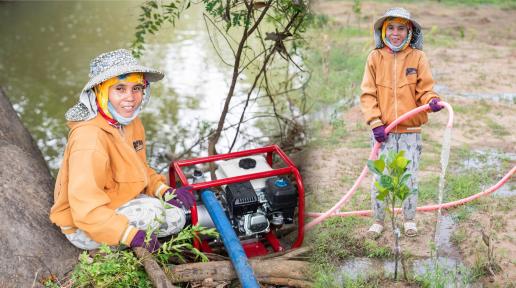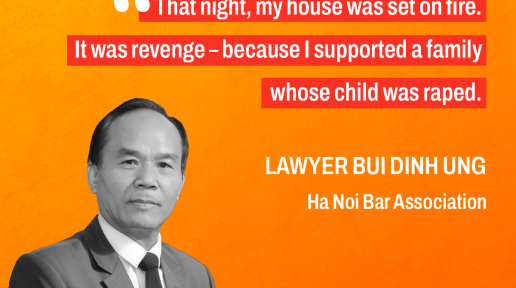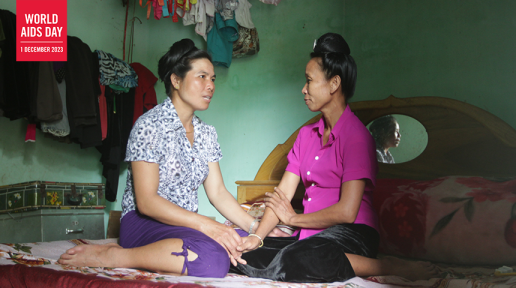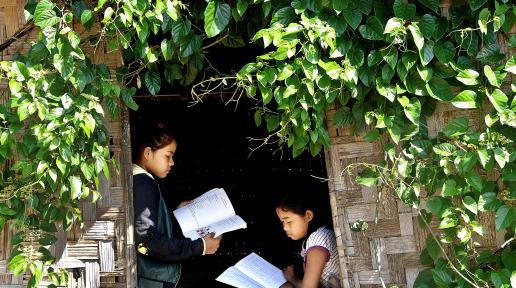Câu chuyện
28 tháng 11 2025
A safer digital future: How Viet Nam can lead the fight against technology-facilitated gender-based violence
Caroline Nyamayemombe and Pauline Tamesis*Việt Nam has made notable progress in advancing gender equality and promoting women’s rights. Its commitment is reflected in strong national policies, investments in digital transformation, and increasing participation of women in public life. The country has also demonstrated global leadership through the Hanoi Convention on Cybercrime, signaling its determination to foster a safer, more resilient digital environment for all.As technology reshapes every part of society, digital spaces have become central to how people learn, work, connect, and express themselves. But alongside opportunity, the online world has also given rise to new risks — including technology-facilitated gender-based violence (TF GBV). This form of violence encompasses image-based abuse, cyberstalking, impersonation, deepfakes, and online harassment. It mirrors and amplifies offline inequalities, often escalating tensions in relationships and increasing the risk of physical harm.According to United Nations, global studies estimate that 16 per cent to 58 per cent of women and girls have experienced technology-facilitated violence, and about 300 million children suffer online exploitation each year. In Việt Nam, two per cent of adolescents aged 15-17 reported having exchanged sexual images and videos of themselves for money or gifts – known as online child sexual exploitation.With 86 per cent of Việt Nam’s population online last year, the digital world has become a new frontline in the fight against gender-based violence. Yet awareness of technology-facilitated gender-based violence (TF GBV) remains limited and response mechanisms are still under development.The UN Global Digital Compact calls for gender equality and the empowerment of all women and girls, and efforts to counter and eliminate all forms of violence, including sexual and gender based violence that occurs through or is amplified by the use of technology. Through cooperation with member states, the UN is working with the Government of Việt Nam and national partners, to strengthen prevention and response. The UN Joint Programme on Ending Violence Against Women and Children (EVAWC) funded by the Australian Government’s Department of Foreign Affairs and Trade, joins the efforts of UNFPA, UNICEF, and UN Women.Since 2023, the EVAWC Programme has helped strengthen Việt Nam’s digital safety and resilience. Through campus dialogues, influencer engagement, and public messaging, the programme built practical skills to prevent and respond to technology facilitated GBV, helping women, adolescent girls, and parents build confidence and share responsibility for safer digital spaces.Beyond the joint programme, the UN promotes online safety for women and children and access to quality and comprehensive care for survivors. One Stop Service Centres in HCM City and seven Ánh Dương houses nationwide and capacity building of service providers equip frontline responders to recognise and respond to online abuse.In 2023, over 30 women’s groups were trained on cybersecurity and solidarity networks, a Safety App (S-App) developed in Đà Nẵng and the e-Peace House platform is under design. These interventions are being developed to enable access to help with a click. Communications campaigns, such as the 16 Days of Activism led by UN Women, campaigns against sexual trafficking by IOM, or against cyber bullying by UNESCO, child protection by UNICEF – advocate for various forms of online safety for women and girls, reaching millions of people in Việt Nam.As with offline violence, a whole of society approach is needed. The Government of Việt Nam is making important strides, collaborating with platforms such as Facebook, Google, TikTok, and YouTube to combat online child sexual abuse. These efforts align with Việt Nam’s first National Action Plan on Women, Peace and Security, which underscores women’s right to live free from violence — online and offline.To harness the positive potential of technology and reduce its risks for women and girls four actions are critical:Firstly, improve the law. Việt Nam should establish clear legal definitions and penalties for technology facilitated GBV – including image-based violence, cyberstalking, and doxing – and ensure swift, victim-survivor-sensitive investigation and prosecution.Secondly, hold technology companies accountable. Platforms must strengthen content moderation, privacy protections, and transparent reporting systems. Partnerships between government, tech firms, and civil society can accelerate rapid takedown of harmful content and support survivors seeking redress.Thirdly, empower women and girls in the digital space. Invest in nationwide digital literacy and safety programmes – particularly for women and girls in rural, ethnic minority, and low-income communities – so that they can navigate, report, and resist online harm.And fourthly, build system and workforce capacity. Upskill police, prosecutors, health and social service providers, and educators with the knowledge, tools, and digital literacy to recognise, investigate, and respond to technology facilitated GBV - ensuring online and offline responses are integrated and victim-survivor centred.Ending technology-facilitated gender-based violence demands awareness, accountability, and action. Every click, share, and post is a choice – to build a digital world that is safe, respectful and inclusive.Việt Nam’s digital transformation agenda can lead by example – creating a future where every woman and girl can connect, speak and thrive online – free from fear. — VNS*Caroline Nyamayemombe is the Country Representative of UN Women and Pauline Tamesis is the Resident Coordinator of the United Nations in Việt Nam













